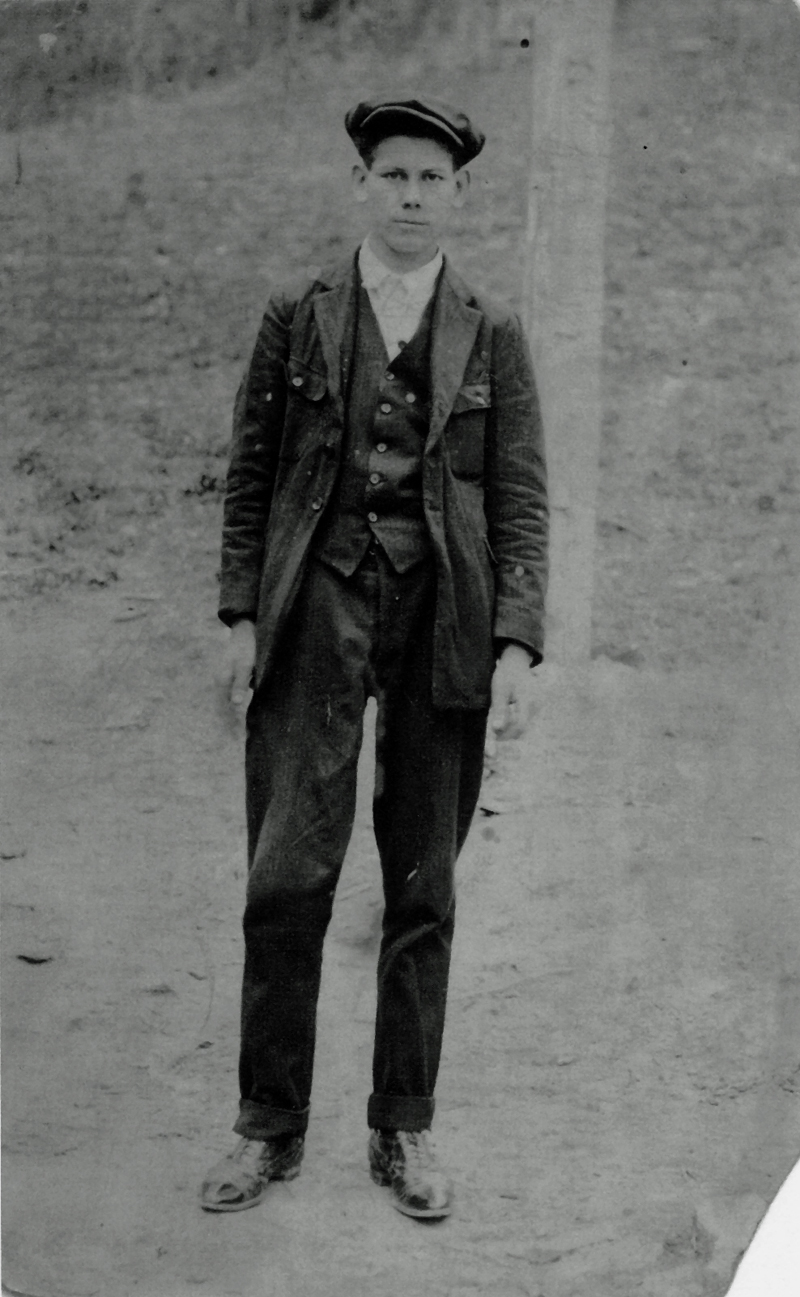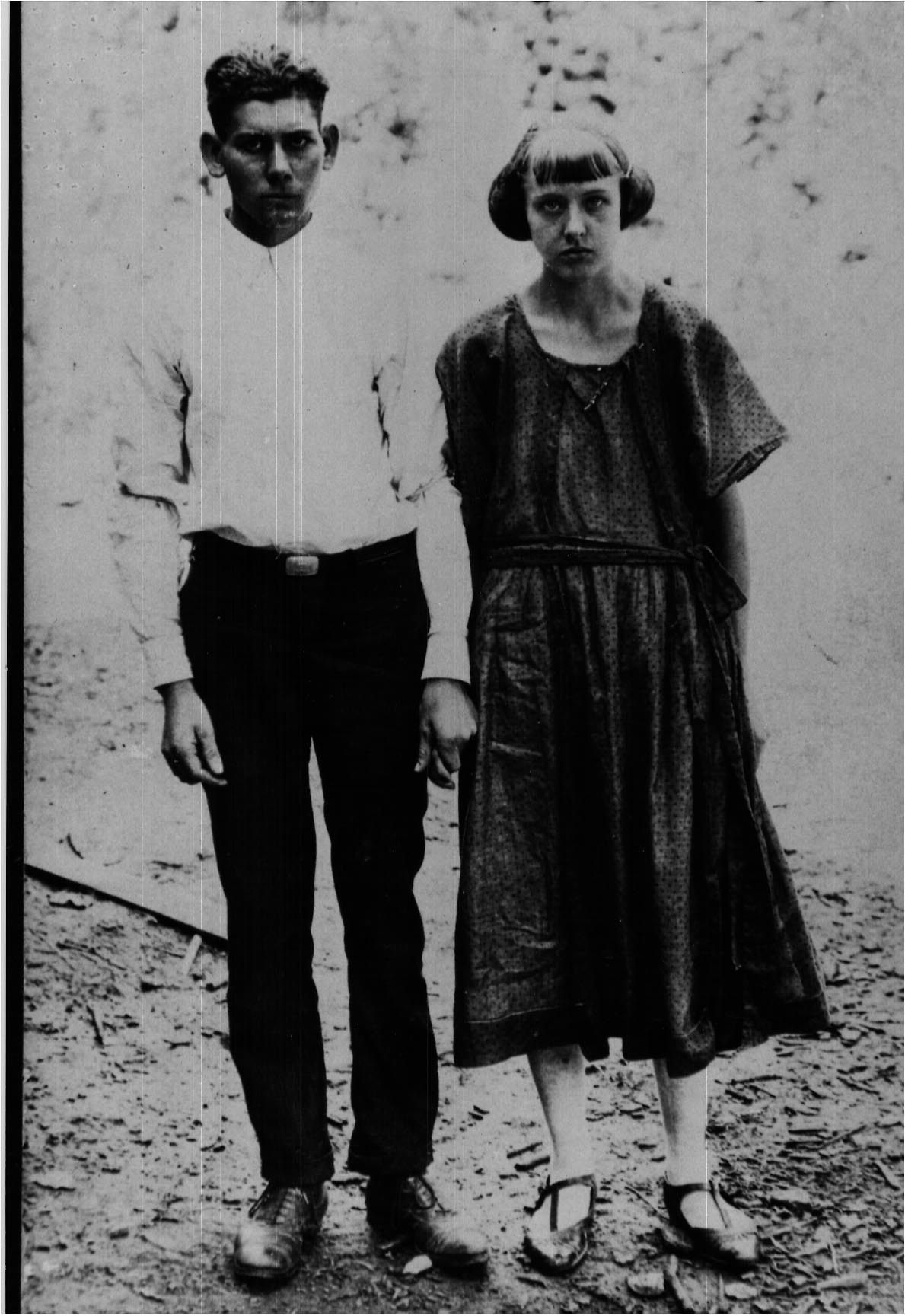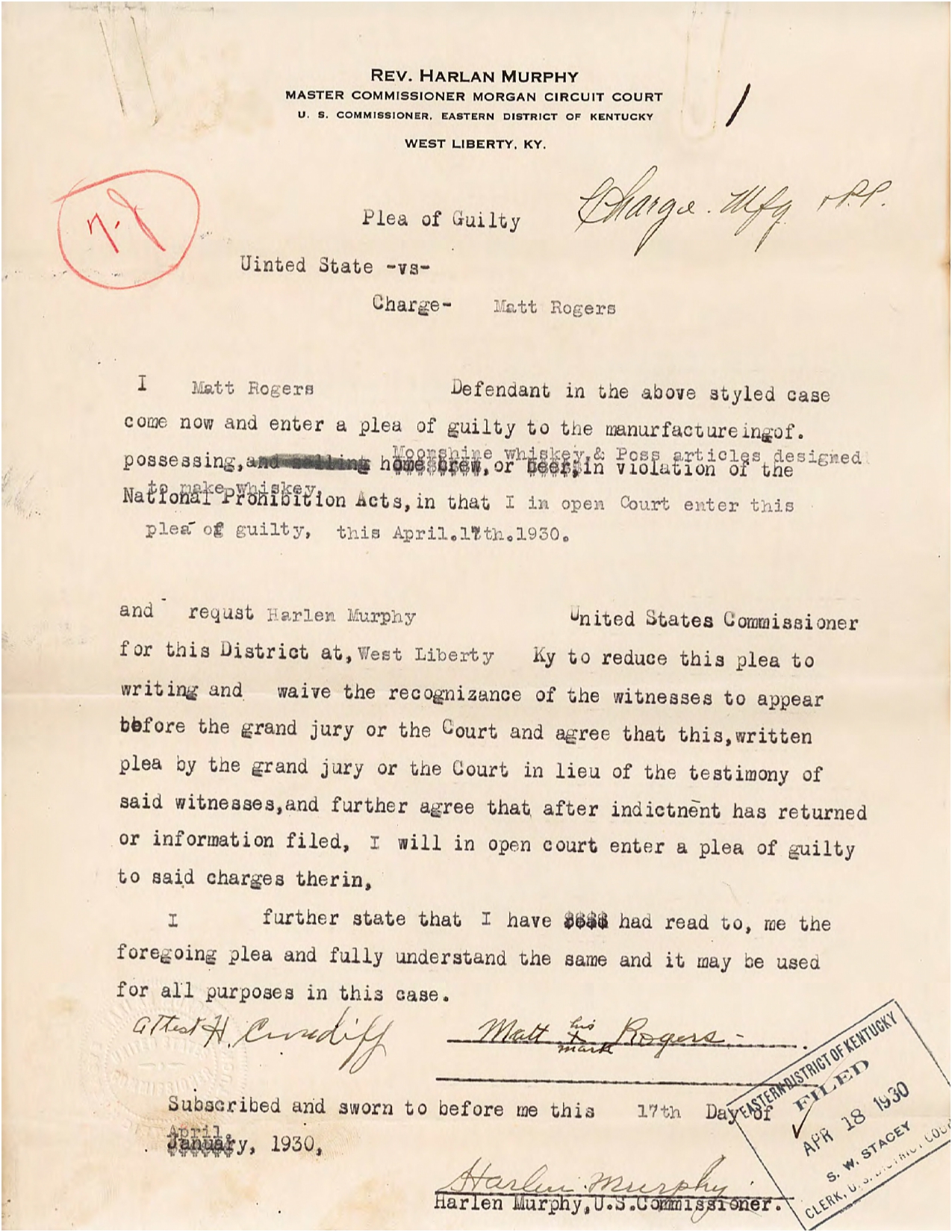Matt Rogers
"A Life Forged in the Hills of Kentucky"
Matt Rogers was born on April 2, 1905, in Powell County, Kentucky, to Hezekiah and Rutha (Bishop) Rogers. His early life was rooted in the rugged landscape of Rogers Chapel, where the 1910 census finds him living with his parents. Tragically, at the young age of thirteen, Matt lost both parents during the devastating influenza epidemic of 1918. Following this profound loss, Matt's brother, Albert Rogers, was appointed guardian over Matt and his younger siblings, demonstrating the strength and support within the family. He then resided with his Uncle Ben Bishop at Rogers Chapel, a testament to the close-knit nature of rural Kentucky families. His father, Hezekiah, was born in Powell County, and Matt himself was born on the south fork of the Red River, directly connecting him to the region.
On September 16, 1924, in Fagen, Kentucky, Matt married Hazel Robbins, embarking on a life journey that would span decades and states. Together, they built a large family, ultimately raising nine children: Hezekiah, Ruth, Dorothy, Gertha, John, Gertrude, Ishmael, Thomas, and Garnett. The 1930 census places the family in Leatherwood, Menifee County, Kentucky, and by 1940, they had settled on Hawkins Branch Road in the same county. These early years in Kentucky, on the south fork of the Red River where Matt was born, were marked by both the joys of family life and the challenges of the time.
Matt's life in Kentucky was not without its hardships. During the Prohibition era, he faced legal troubles, including an arrest in April 1930 for operating a moonshine still. Family lore and historical records suggest that Matt's involvement with illicit activities extended beyond this single incident. Family members recall him periodically absent for weeks, a pattern that, in light of the moonshine arrest, strongly suggests continued involvement in the production and distribution of illegal alcohol. While direct evidence is lacking, the challenges of making a living in rural Kentucky during this era, coupled with Matt's known history, paints a picture of a man navigating difficult circumstances. In October 1953, Matt faced another legal challenge when he was charged with carrying a concealed revolver. As reported in the Winchester Sun on October 19, 1953, he was held to the December grand jury under a $500 bond.¹ Court records show that he was ultimately found not guilty of this charge just a week prior to his disappearance.² This recent court case, as his wife noted, had caused him considerable worry. Matt's life was marked by both love for his family and the harsh realities of his time. Family members have shared memories of a sometimes stern demeanor, perhaps shaped by the pressures of providing for a large family during challenging economic times.
Prior to this move, in 1954, Matt's brief disappearance garnered local attention. On April 19, 1954, the Winchester Sun reported, "Search Made for Clark Man," detailing the concern of his wife, Hazel, and sister, Lila Lairson, who sought assistance from city and county officers. The article noted that Matt, a 50-year-old farmer residing on the Carroll Farm on Elk Station Road, seven miles south of Winchester, had last been seen around 5 p.m. on Friday. He had reportedly told his wife he was going to check on a goat. The article further described his known movements: a walk to the Boonesboro Road, a ride with George Hardy to Flynn's Grocery, and then a walk toward the Winchester reservoir pump station. The article mentioned that Matt was wearing overalls, a green corduroy jacket, and a brown leather cap. The concern was such that Mrs. Rogers indicated the state police would be asked to drag the Winchester Reservoir if he wasn't found. The search concluded successfully when Matt was found on Monday night, April 20, 1954, as reported in the Winchester Sun article "Man Missing for 3 Days Found."³ State Trooper James McMullin, who had joined the search, located Matt walking east on the Clay City Road (State Highway 15) near Pilot View, about eight miles from Winchester. The article quotes Matt as saying he had become lost while crossing fields in Clark County and was trying to reach relatives in Powell County. He was taken to the home of a brother on Hughes Avenue. Until his discovery, his wife and family had expressed serious concerns for his safety. The article notes that he had last been seen walking west on the water works road toward the Winchester water works lake, prompting the family's concern about a potential search of the lake. This incident, while unsettling, provides a glimpse into the challenges and uncertainties faced by the family. By 1959, they had settled in Kokomo, Indiana, seeking new opportunities.
Matt Rogers passed away on February 22, 1993, in Kokomo, Indiana, and is buried at Sunset Memory Gardens. His life story, from the hills of Kentucky, along the banks of the Red River, to the industrial heartland of Indiana, is a testament to resilience, family, and the enduring spirit of the Appalachian people. He navigated the challenges of his time, from the loss of his parents to economic hardship and the unknowns of starting anew in a different state, ultimately building a life and legacy for his large and loving family.



💠 Want to explore more memories?
Visit Matt Rogers’ Memory Quilt page
for additional photos, stories, and family treasures stitched with love.
This article was originally published in the Spring 2025 issue of the Red River Historical Society Newsletter.
Shared here with permission as part of our family’s digital legacy project.
If you would like to purchase a printed copy of this article, you may contact:
Red River Historical SocietyP.O. Box 517
Clay City, Kentucky 40312